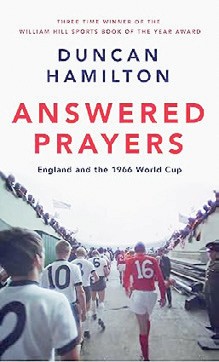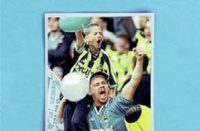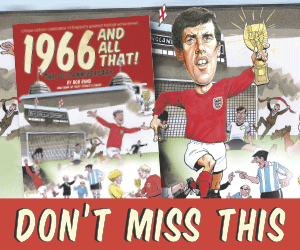Answered Prayers: England and the 1966 World Cup, by Duncan Hamilton, published by Riverrun, Price: £24.99
‘ANSWERED Prayers’ is Duncan Hamilton’s personal homage to Alf Ramsey and the England World Cup winners. The 1966 success is still England’s crowning football achievement and it may never be surpassed, but Ramsey and the players never got the rewards and recognition they deserved and were treated poorly by the Football Association.
Hamilton is a great storyteller, and he captures the pervading atmosphere of the time. There was a tremendous significance in a World Cup final against West Germany only 21 years after the Second World War. The fear England would lose was palpable among those who could not bear the prospect of defeat against the Germans.
In 1963 Ramsey had predicted that England would win the World Cup in ’66 but few believed him at the time. However, in the build-up to the World Cup Bobby Charlton said that Ramsey’s ‘attention to detail’ was ‘quite fanatical’ and he began to believe that England might just win it.
The key events of the final are well known but Hamilton highlights some significant ‘What ifs’. What if Ray Wilson hadn’t dropped his marshmallow header towards Helmut Haller? What if Helmut Schon hadn’t made a technical mistake by binding Franz Beckenbauer to Bobby Charlton?
Arthur Rowe defined what made a truly great manager. “It isn’t only what he knows about football, but what he knows about men,” he said. “What if Alf Ramsey hadn’t possessed that quality?”
Hamilton is nostalgic for the football of the period. For example, no pitch side advertising, every player in black boots, shirts unsullied by sponsors’ logos spread across the chest or on the back.
He believes: “While 1960s football was slower than today’s Premier League – how could it not be? everything was simpler and less wrapped up in the kind of anal micro-tactics that today fill hours upon hours of pre-and post-match TV analysis.”
He states that the attributes that won Alf Ramsey the World Cup – obstinacy and his implacable belief that he was always right – meant he would never win another. After England failed in 1970, Ramsey rather foolishly said: “I don’t think we can learn anything from the Brazilians.”

Ramsey’s removal as England manager after failing to qualify for the 1974 World Cup was probably necessary but it was ineptly done by the FA and edged with malice. The world had moved on from ’66 but Ramsey and his team didn’t or couldn’t always move with it.
Some struggled in their football careers and didn’t receive the rewards they might have expected. George Cohen and Bobby Moore were diagnosed with cancer, Nobby Stiles had thoughts of suicide and Jimmy Greaves turned to alcohol. Sadly, Ramsey never got the proper recognition he deserved.
Hamilton is one of the most accomplished sportswriters and this book superbly captures the feeling of summer 1966 as an ending rather than a new beginning.
It was a time when English football shined brightest but the good times didn’t last long for the manager or the players.
Rating out of 10: 8


















